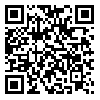Volume 13 -
IJMEHM 2020, 13 - : 343-377 |
Back to browse issues page
Download citation:
BibTeX | RIS | EndNote | Medlars | ProCite | Reference Manager | RefWorks
Send citation to:



BibTeX | RIS | EndNote | Medlars | ProCite | Reference Manager | RefWorks
Send citation to:
Motevassel Arani M, Parsa M, Sayyedin S H, Isazadeh N, Rostamian A, Parwiz M et al . Identification of Organizational Culture Components Based on Islamic – Iranian Values: A Field Literature Review with Synthesizing Approach. IJMEHM 2020; 13 :343-377
URL: http://ijme.tums.ac.ir/article-1-6260-en.html
URL: http://ijme.tums.ac.ir/article-1-6260-en.html
Mahmoud Motevassel Arani1 
 , Mojtaba Parsa2
, Mojtaba Parsa2 
 , Seyed Hesamoldin Sayyedin3
, Seyed Hesamoldin Sayyedin3 
 , Nikzad Isazadeh4
, Nikzad Isazadeh4 
 , Abdolrahman Rostamian5
, Abdolrahman Rostamian5 
 , Mohsen Parwiz5
, Mohsen Parwiz5 
 , Hossein Dargahi *
, Hossein Dargahi * 
 6
6

 , Mojtaba Parsa2
, Mojtaba Parsa2 
 , Seyed Hesamoldin Sayyedin3
, Seyed Hesamoldin Sayyedin3 
 , Nikzad Isazadeh4
, Nikzad Isazadeh4 
 , Abdolrahman Rostamian5
, Abdolrahman Rostamian5 
 , Mohsen Parwiz5
, Mohsen Parwiz5 
 , Hossein Dargahi *
, Hossein Dargahi * 
 6
6
1- Associate Professor, Islamic Ethics Department, School of Medicine, Tehran University of Medical Sciences, Tehran, Iran
2- Assistant Professor, Medical Ethics Department, School of Medicine; Medical Ethics and History of Medicine Research Center, Tehran University of Medical Sciences, Tehran, Iran
3- Associate Professor, Health Care Management Department, School of Management and Medical Information, Iran University of Medical Sciences, Tehran, Iran
4- Associate Professor, Quran Sciences, Hadis, and Medicine Research Center, Tehran University of Medical Sciences, Tehran, Iran
5- Professor, Vice Chancellorship of Cultural Affairs, Tehran University of Medical Sciences, Tehran, Iran
6- Professor, Management Sciences and Health Economics, School of Public Helath, Health Information Management Research Center, Tehran University of Medical Sciences, Tehran, Iran
2- Assistant Professor, Medical Ethics Department, School of Medicine; Medical Ethics and History of Medicine Research Center, Tehran University of Medical Sciences, Tehran, Iran
3- Associate Professor, Health Care Management Department, School of Management and Medical Information, Iran University of Medical Sciences, Tehran, Iran
4- Associate Professor, Quran Sciences, Hadis, and Medicine Research Center, Tehran University of Medical Sciences, Tehran, Iran
5- Professor, Vice Chancellorship of Cultural Affairs, Tehran University of Medical Sciences, Tehran, Iran
6- Professor, Management Sciences and Health Economics, School of Public Helath, Health Information Management Research Center, Tehran University of Medical Sciences, Tehran, Iran
Abstract: (2383 Views)
Keywords: Health care organizations, Indicator, Islamic-Iranian culture, Organizational culture, Component
Type of Study: Research |
Subject:
Medical Ethics
Received: 2020/05/18 | Accepted: 2020/10/3 | Published: 2020/03/20
Received: 2020/05/18 | Accepted: 2020/10/3 | Published: 2020/03/20
| Rights and permissions | |
 |
This work is licensed under a Creative Commons Attribution-NonCommercial 4.0 International License. |



